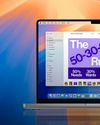
The Inflation Reduction Act signed into law in 2022 expanded tax credits ranging from $3,750 to $7,500 for purchases of new and used EVs, an effort by the Biden administration to stoke demand toward its goal that half of all new vehicle sales be electric by 2030. But qualifying for the credits depends on requirements related to their battery makeup and minerals that get tougher each year.
As of Jan. 1, new rules favor U.S. domestic materials and manufacture. The rules largely target battery components from nations “of concern” — mostly China, but also Russia, North Korea and Iran.
China dominates crucial parts of EV battery supply and production, even as automakers race to establish key mineral and components efforts elsewhere. As a result, only 13 of the more than 50 EVs on sale in the U.S. are eligible for the credits so far this year, down from about two dozen models that qualified in 2023.
The Tesla Model Y SUV, Chevrolet Bolt compact car and Rivian R1T pickup truck all still qualify. But even different trim levels and variants of the same model now qualify differently; certain Teslas are no longer eligible.
Neither are the Chevrolet Blazer SUV and the Cadillac Lyriq, from General Motors; the Ford Mustang Mach-E; or the Nissan Leaf.
Carmakers say they’re scrambling to source parts that will make their models eligible for tax credits, but those parts can’t be sourced overnight, especially as several automakers are chasing the same goal.
This story is from the January 12, 2024 edition of AppleMagazine.
Start your 7-day Magzter GOLD free trial to access thousands of curated premium stories, and 9,000+ magazines and newspapers.
Already a subscriber ? Sign In
This story is from the January 12, 2024 edition of AppleMagazine.
Start your 7-day Magzter GOLD free trial to access thousands of curated premium stories, and 9,000+ magazines and newspapers.
Already a subscriber? Sign In

AI Home
THE NEXT FRONTIER FOR APPLE INTELLIGENCE, INTERACTION, AND AUTOMATION

Assistance A NEW PRODUCTIVITY ERA BEGINS FOR THE ENTIRE APPLE ECOSYSTEM
As Apple continues to lead in hardware-software integration, the debut of Apple Intelligence reinforces its commitment to offering an AI experience unique to its ecosystem, one that aligns with the company’s ethos of privacy and ease of use.

Camera Control
NEW ADVANCED FEATURES FOR MASTERING PHOTOGRAPHY PRODUCTION

iPad Pro M4 LOGIC PRO & FINAL CUT PRO: THE NEW HEIGHTS OF MOBILE COMPUTING
There’s no denying that professionals are keen to see major changes come to iPadOS, and though we won’t know for sure until Apple lifts the lid on the next version at WWDC, Apple’s latest software developments for iPadOS are worth talking about.

iPad mini AI-READY DESIGN: THE A17 CHIP POWERHOUSE IN A COMPACT SIZE
Technology continues to shrink in size yet grow in capability, and the new iPad mini is no exception.

macOS Sequoia PRODUCTIVITY & INTELLIGENCE COMBINED AT THE FORE
With macOS Sequoia, Apple is redefining the landscape of desktop computing, introducing many features designed to enhance user productivity and new levels of artificial intelligence integration.

iMac M4 INTRODUCING THE FIRST APPLE DESKTOP READY FOR ADVANCED AI
Apple has taken another step towards revolutionizing the world of personal computing with the launch of its latest iMac.

MacBook Pro M4 UNMATCHED AI PERFORMANCE THROUGH A NEW STUNNING XDR DISPLAY
Apple has launched its latest lineup featuring the cutting-edge M4 chip family and the all-new Apple Intelligence system.

2025 SCALING NEW HEIGHTS IN PROCESSING POWER
Over the past few years, Apple has reshaped nearly every part of its ecosystem, from the hardware to the software, to push the boundaries of technology.

Next Gen - iOS 18: PERSONALIZATION & INTELLIGENCE ACROSS MULTIPLE FEATURES & APPS
At this year’s WWDC, Apple introduced iOS 18, a significant update set to redefine the user experience on iPhone.